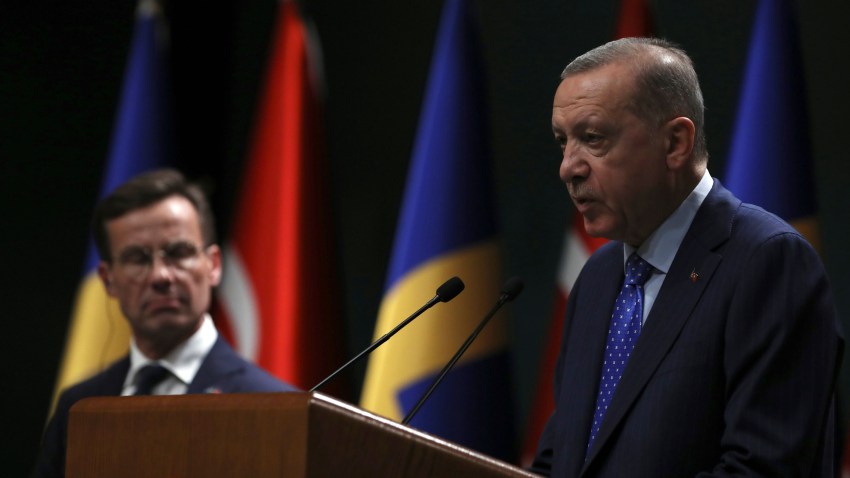A diplomatic row between Sweden and Turkey escalated this week when Turkish President Recep Tayyip Erdogan warned Sweden that it should not expect Ankara’s backing to join NATO, after protesters burned the Quran outside the Turkish Embassy in Stockholm last week. Erdogan’s remarks could further complicate the Scandinavian country’s bid to join the defensive alliance, and NATO officials have been scrambling all week to defuse the tensions. Sweden applied to join NATO after Russia invaded Ukraine in February 2022—as did Finland, its neighbor to the east.
Sweden requires the unanimous approval of all 30 NATO members in order to join, with Turkey and Hungary the only NATO members that have yet to ratify its accession. Though Turkey insists it has no objection to the merits of Sweden’s accession bid, Erdogan appears bent on using the leverage afforded to him by the requirement for unanimous consent to extract concessions from Stockholm. Ankara’s demands include the extradition of Kurds who have claimed asylum in Sweden, but who Turkey has branded as terrorists. Recognizing the need to win Turkey’s approval, Sweden was left with little choice but to distance itself from Kurdish groups like the Syrian Kurdish YPG militia, a decision that in turn enraged many Swedes. The YPG and its political branch, the PYD, are widely considered to be Syrian extensions of the Turkish Kurdish Kurdistan Workers Party, or PKK, which launched an insurgency against Ankara in the 1980s and is listed as a terrorist organization by Turkey as well as the United States and the European Union.
Protests against Ankara’s position have broken out on the streets of Stockholm this month, with the demonstrators falling into three categories: Kurds who say they are being used as pawns on a geopolitical chessboard; Swedes who oppose making concessions to Turkey; and far-right groups that oppose an alliance with Turkey because it is a Muslim-majority country. It is the latter group that has now inflamed tensions between Ankara and Stockholm, after Rasmus Paludan—a Danish politician with links to Swedish far-right parties backing the current right-wing government elected last year—burned the Quran outside the Turkish Embassy in Stockholm during protests on Jan. 21.

